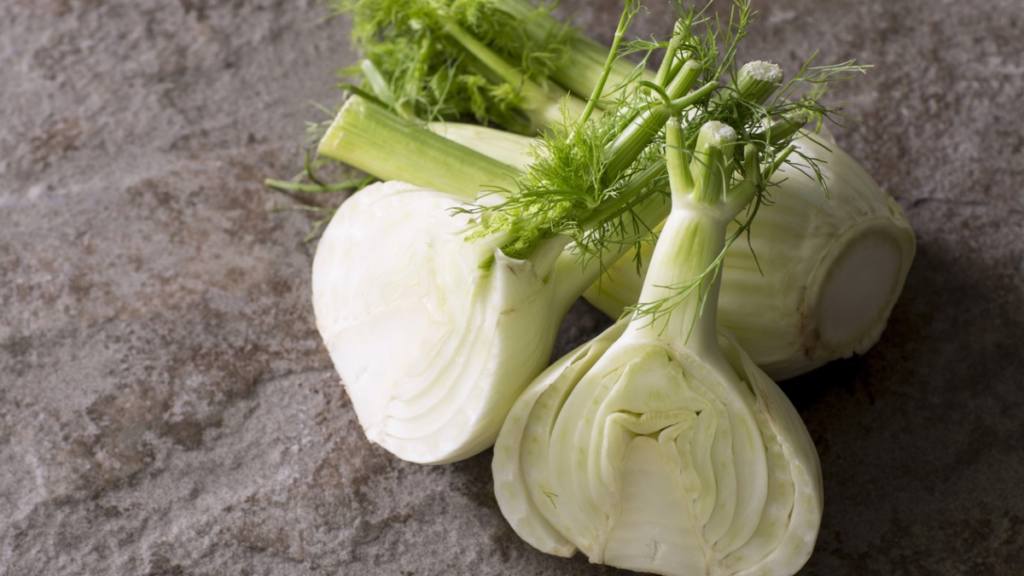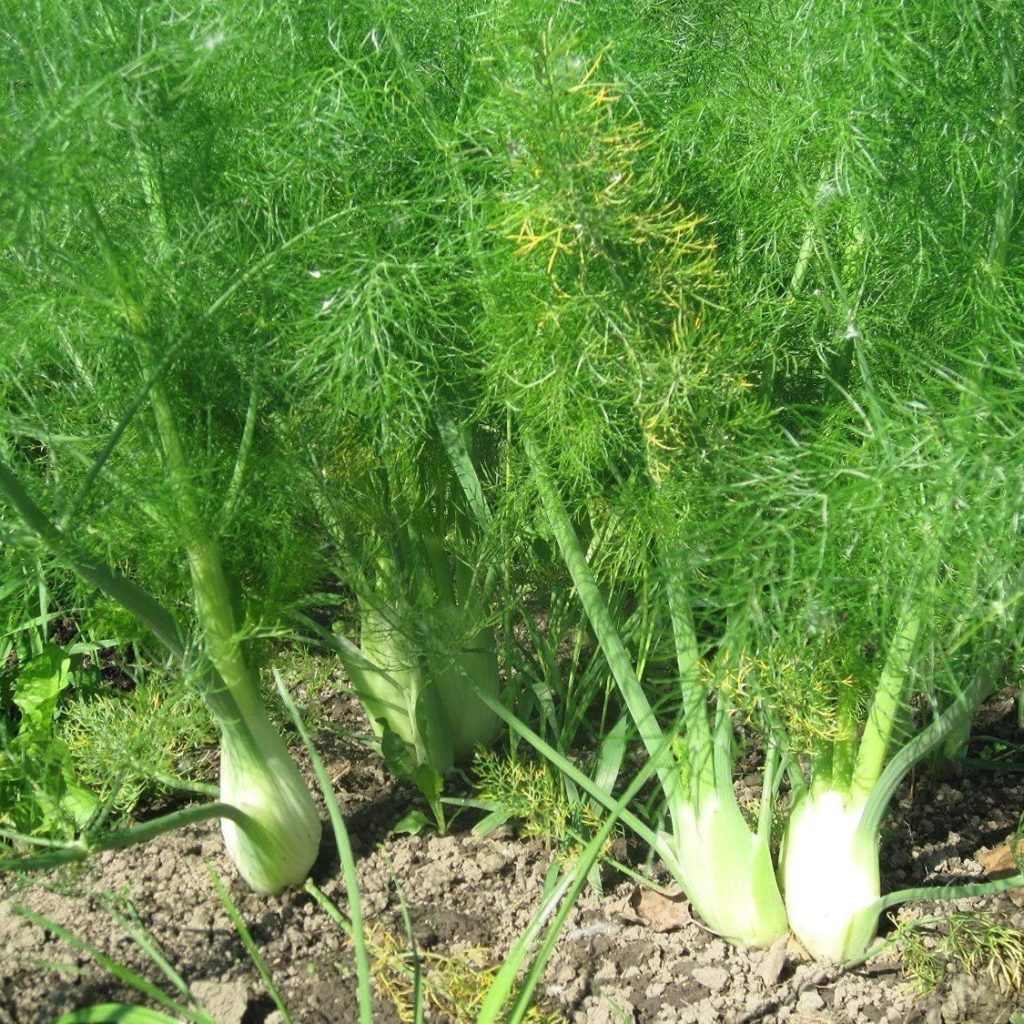Fennel (Foeniculum vulgare) is a popular vegetable in the United States. Fennel is a member of the same family as carrots and dill and is commonly used in Italian and Indian cuisine. Due to their similar licorice flavor, fennel and anise are frequently confused. On the other hand, Fennel is a vegetable distinct from the similar-tasting herb anise. Fennel has 31 calories per 100 grams,0.2gram fat, and 1.2 grams of protein. Fennel is commonly used as a garnish or spice, but it can also be used as the basis of a meal. Fennel is a nutritious vegetable that deserves more attention, whether eaten raw in salads or cooked as part of a recipe.
Fennel is an aromatic plant that comes in both seed and herb forms. Fennel is used in personal care and alternative medicine and is perhaps best known for its ability to add a bright burst of licorice-like flavor to dishes. Learn everything there is to know about this Mediterranean plant, including all of its potential health benefits and risks.
Fennel Nutrition Facts
What is Exactly Fennel?
Fennel is a perennial plant that can reach a height of 3 feet. It also has hollow stems and small yellow flowers. According to historians, fennel is a herb that is thought to have originated in the Mediterranean. Fennel was given the name “Foeniculum” by the Romans, which means “fragrant hay.” Fennel is now grown all over the world. Fennel is so common that it’s considered invasive in some areas due to its ability to sprout quickly and engulf native vegetation. It grows exceptionally well in dry soil near bodies of water, such as riverbanks. According to historians, fennel is thought to have first arrived in the United States after the Spanish settled in Virginia.
What are the Health Benefits of Fennel?
Fennel contains several phytonutrients and flavonoids that have antioxidant, anti-inflammatory, and antibacterial properties and vitamins and minerals. Fennel’s reputation as a therapeutic agent stems from these plant compounds.
Helps Prevent Cancer
Fennel has a lot of flavonoids and an exciting compound called anethole. Anethole is a free radical scavenger that has been shown to kill cancerous cells before they develop. Its effects have been studied using essential oils extracted from fennel.
Promotes Dental Health
Chewing fennel seeds changes the pH balance in the mouth, which reduces the risk of dental cavities. According to studies, chewing on fennel seeds for 10 minutes increases saliva production and raises the pH of the mouth slightly. These modifications reduce bacterial activity and protect teeth from decay.
Reduces Risk of Heart Disease
Fennel is a vegetable that fits perfectly into the heart-healthy eating guidelines. Fennel is naturally free of saturated and trans fats, and its fiber and antioxidant content make it a powerful cardiovascular disease fighter. Vitamin C has been shown to increase the production of nitric oxide, which relaxes and widens blood vessels through vasodilation, and Vasodilation lowers the chances of dangerous blockages occurring.
Supports Breastfeeding
Breastfeeding mothers have been using fennel to stimulate lactation for centuries. Anethole, a compound found in fennel, promotes galactogenic activity. Dopamine, a neurotransmitter, frequently inhibits prolactin, the hormone responsible for milk production. Lactation is not inhibited because anethole from fennel competes with dopamine.
Improves Digestion
Irritable bowel syndrome (IBS), colic, and heartburn are all conditions that fennel is commonly used to treat. Within 30 days of treatment with fennel oil and turmeric, the severity of IBS symptoms was significantly reduced. The reduction in abdominal pain is thought to be due to fennel.
What are the Side Effects of Eating Fennel?
Although it is very healthy, it does have some adverse side effects:
- Avoid use if there is hypersensitivity to carrots, celery, or mugwort.
- Do use when using antibiotics.
- Avoid using fennel preparations other than fennel honey and fennel seed infusions during pregnancy.
- Children only use fennel, honey.
- Epilepsy or seizure disorder
- This medication contains fennel. Do not take aneth doux, bitterfenchel, Fenchel, or Foeniculum vulgare if you are allergic to fennel or any ingredients contained in this drug.
- Keep out of reach of children. Get medical help or contact a Poison Control Center immediately in case of overdose.
Varieties
Fennel comes in a variety of shapes and sizes. The most common type of fennel found in supermarkets is Florence fennel. Florence fennel has short, green stalks with dark green, feathery fronds, similar to celery. The bulb is round and cream-colored. Baby fennel or young fennel is a smaller, more tender version of Florence fennel. On the other hand, wild fennel has a smaller, flatter bulb and many feathery fronds. Young fennel and wild fennel are more likely to be found in specialty shops and farmer’s markets.
Fennel seeds are also edible and can be used to season food. Fennel seeds come from a bulbless fennel variety known as common fennel. The seeds of common fennel are grown solely for harvesting.
The Best Ways to Select and Store Fennel
Fennel comes in various forms, each of which is best suited to a specific purpose. You’ll use the seeds, bulb, leaves, and fronds from the plant if you’re cooking with whole fennel. Green seeds are preferred, but fresh and dried leaves can also be used. Fennel bulbs can be eaten raw or cooked in various ways, including grilling or sautéing. The herb-like fronds of the vegetable can be used fresh in various recipes. Pollen is the flower of a different type of wild fennel, but it’s a commodity that’s usually saved for special occasions. When picking fresh fennel, look for firm bulbs with bright green tops and leaves. Fennel can be kept in the refrigerator for five days after purchase. Fennel supplements, dried herbs, and essential oils are also available. Store these types of fennel from spoiling in a cool, dark place, such as a cabinet.
How to Prepare Fennel?
This root vegetable’s bulb is the most delicious part. Fennel is prepared by slicing the bulb into strips. Roasting, baking, sautéing, or grilling fennel is similar to roasting, baking, sautéing, or grilling other root vegetables like carrots. Fennel has a licorice-like sweet, earthy flavor, and it goes well with curries, pumpkin soups, apple-stuffed pork chops, and other sweet and savory dishes.
Some common ways to add fennel into your diet include:
- Substitute fennel stalks for celery stalks in recipes for soups or stews.
- Wrap fennel in tin foil with ham and other root vegetables and cook in the oven until soft.
- Use sautéed fennel as a bed for roast chicken or pork.
- Dice fennel and add it to a salad.
- Roast fennel wedges with salt, pepper, and butter
What is a Good Substitute for Fennel?
The flavor of fennel is similar to that of licorice. If you don’t have any fennel on hand, don’t worry; some herbs can be substituted. A similar herb called anise is a possible substitute for fennel, as the two have a similar taste and smell. Anise, on the other hand, isn’t as potent. Their seeds are also similar in appearance. Fennel and dill have similar-looking leaves, so they’re often confused. Because of the similarity in names, it’s sometimes confused with fenugreek. If you don’t have a fennel, you can also use dill as a substitute.
You can also use other types of spices in place of fennel seeds, including:
- Licorice root
- Caraway seeds
- Cumin seeds
- Coriander
Florence Fennel Seeds
Features
- Seeds will arrive in our one-of-a-kind Frozen Seed Capsules – an air/water-tight glass vial packed with organic cotton and moisture-absorbing silica beads. The perfect environment for long-term seed storage!
- Frozen Seed Capsules are designed as time capsules for seeds. Store in the freezer to protect and preserve your seeds for many years of excellent germination rates. Seeds saved in a frozen environment can last for decades.
- The screw-top lid provides an air/water-tight environment to keep seeds dry. The glass vial ensures protection for long-term storage, and seeds are easily viewable yet completely secure; no more flimsy envelopes! Organic cotton keeps seeds dry and comfortable, and color-changing silica beads absorb moisture to prevent seed damage.
Conclusion
Fennel is a nutrient-dense vegetable that can be incorporated into a well-balanced diet. Fennel flowers, seeds, leaves, and bulbs can be used in various ways, from seasoning dishes to making teas. It’s important to remember that while no single food can prevent disease or improve overall health, a well-balanced, nutritious diet can. The key to good health is to eat a variety of fresh foods. Fennel has a licorice-like sweet, earthy flavor. It goes well with curries, pumpkin soups, and apple-stuffed pork chops, as well as other sweet and savory dishes.




